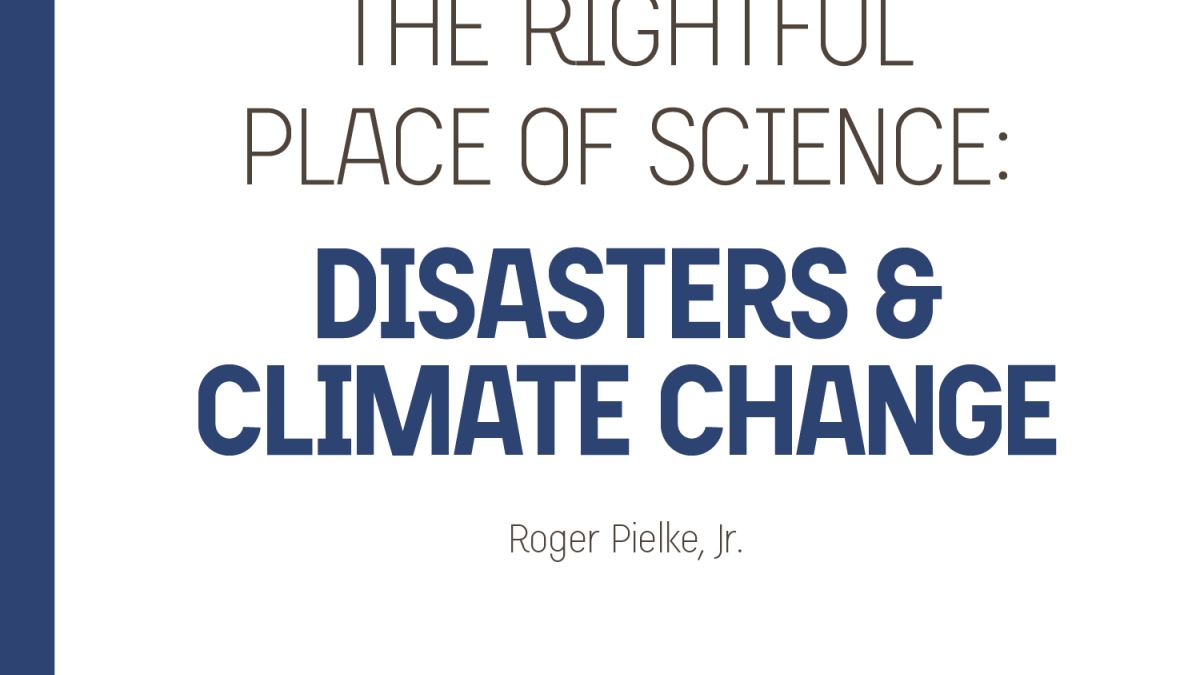Science book series expands with new editions on natural disasters, energy

Following the inaugural volumes published last fall, Arizona State University’s Consortium for Science, Policy & Outcomes has released two new titles in its innovative "Rightful Place of Science" book series. The series, edited by author and ASU professor G. Pascal Zachary, explores the complex interactions among science, technology, politics and society.
“These provocative new books look at two critical and controversial subjects,” according to Zachary. “Is climate change contributing to the rising costs of disasters? And what is the government’s role in energy innovation? The volumes are short and accessible without sacrificing any of the depth or complexity that these topics demand and that readers expect from academic publications.”
In recent years, the media, politicians and activists have popularized the notion that climate change has made disasters worse. But what does the science actually say? In "The Rightful Place of Science: Disasters & Climate Change," the reliably brilliant Roger Pielke, Jr. takes a close look at the work of the Intergovernmental Panel on Climate Change, the underlying scientific research and the data to provide the latest science on disasters and climate change. His surprising conclusions raise questions about the role of science in political debates, and challenge the conventional wisdom on how to best address the increasing costs of natural disasters.
Georgia Institute of Technology professor Peter J. Webster praised "Disasters & Climate Change" as “a welcome beacon of light on the science of climate change and extreme weather events.” Professor John McAneney, the managing director of the Risk Frontiers research center at Macquarie University, called the book a “valuable and timely contribution.”
In "The Rightful Place of Science: Government & Energy Innovation," subject-matter experts tackle the complex role of the government in fostering innovation in the energy sector. Energy innovation is necessary to maintain economic competitiveness, meet ever-increasing demand and limit the accumulation of greenhouse gases in the atmosphere. In a series of nuanced case studies edited by Daniel Sarewitz, Consortium for Science Policy & Outcomes co-director, the book illustrates the many ways in which government innovation policies and activities, often carried out in partnership with the private sector, have helped to steer the development and improvement of the lower-carbon technologies that underlie our energy future.
Both of these volumes, along with the previous books in "The Rightful Place of Science" series ("Politics" and "Biofuels"), are available in the United States and Europe via Amazon.com and the CreateSpace.com online store.
The Consortium for Science Policy & Outcomes is a research center in the College of Liberal Arts and Sciences.